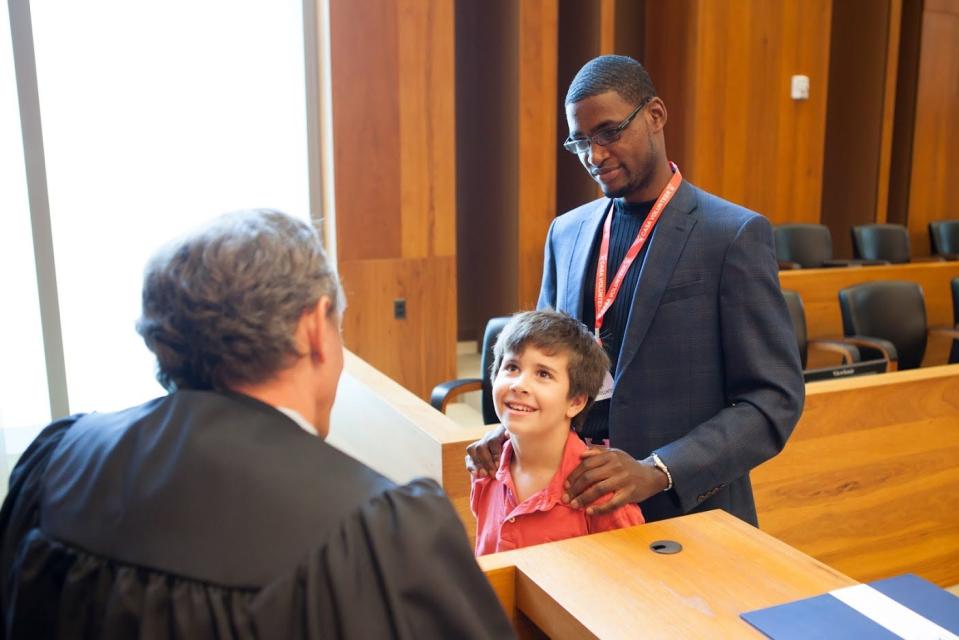Navigating child safety challenges in Texas foster care family reunifications
The Texas Department of Family and Protective Services offers a deep set of data on the foster care system, but those numbers only provide a glimpse into the struggles children face in the state. One particularly complex data point involves children who are reunified with their families and within 12 months are once again confirmed victims or involved in investigations for services. An average of 10.9% of reunified children in Texas during the 2023 fiscal year faced this concern.
Some experts are unsure whether this percentage, or any data, can fully reflect the state of children’s safety in Texas. In 2021, Texas lawmakers passed House Bill 567 which changed the standard for removing children from their homes. The state could take custody if there was “a substantial risk,” but the bill now requires there to be an “immediate danger” to the child. Since the passage of this bill, there’s been a decrease of approximately 6,000 removals.
Sarah Font, an associate professor of sociology and public policy at Pennsylvania State University, has researched re-entries into the foster care system after family reunifications. Font shared the uncertainty of how the bill is impacting children.
“With Texas changing the standard for removal, there's a lot more kids who are thought to be abused or neglected, that aren't coming into care,” Font said. “Maybe that's a good outcome, but we don’t really know if they’re safe. Similarly, once they’re reunified, we only know if they enter care or not. We don't really know if they're safe or having their basic needs met.”
After a child is reunified, whether it be at DFPS or the court’s recommendation, DFPS attempts to immerse the parents in services they need, including care for mental health, substance abuse, housing, food banks or building a family support network. However, there are still cases where children are once again confirmed victims due to parents facing environmental or stress-related factors.

“What we're trying to do is build a strong support network so that when and if the parent has the child in their home, they can reach out for assistance,” said Ryan Ybarra, CPS program administrator for conservatorship. “But I've been here long enough that we've seen where little Johnny was returned and two years later, Mom relapsed.”
When children are removed from their homes, the court may mandate parents to complete corrective actions aimed at rectifying the circumstances leading to the removal. These measures include but are not limited to, completing parenting classes, undergoing drug testing, participating in counseling sessions, and demonstrating a stable income. The court will typically monitor the family for 12 months.
“At the end of that 12 months, the judge has to make a decision,’” said John Lennan, a DFPS spokesman. “Did the family do everything they needed to do so that the child can come home safely?”
During that time, parents have to prove they’re fit to have their children back home. Seana Towler, Program Director at Court Appointed Special Advocates of the Coastal Bend, shared concerns regarding the reunification timeline, specifically for parents with a history of substance abuse.
“A lot of the families whose children come into care, the parents have their own trauma,” Towler said. “They might have grown up in very similar situations. But when you've been talking about, let's say 10 years or more of dysfunction, and the department comes in and takes your kids and they say you have one year to get your life together, it can really present a challenge.”
Some parents may disagree with the court’s mandate to take parenting classes, leading to possible recidivism.
“If they do participate voluntarily in our services, they're actually going to utilize the skills even after we're gone,” said Marisol Gomez, director of Methodist Children's Home Family Outreach in Corpus Christi. “If they're mandated to participate in services, and even though the skills, techniques, strategies, interventions that we're teaching are helpful, there may not be that buy-in to actually utilize those skills once we're out of the picture.”
Font said families may face difficulties post-reunification.
“Even the best services are not going to necessarily always work,” Font said. “In every society, there are parents who cannot safely care for their children, and sometimes the system just makes the wrong choice. So, they reunify, and then the child is harmed again. In some of those cases, it's just bad decision-making.”
However, for the parents who undergo parenting classes during the reunification process, Gomez is hopeful the classes will have a lasting impact.
“When there's that willingness to participate, I really truly feel like we can help a family significantly,” Gomez said. “But if not, how much of that sticks with them? I don't know. But I want to be optimistic, so hopefully they're able to implement that and practice it even after classes are over.”
This article originally appeared on Corpus Christi Caller Times: Navigating child safety key in foster care family reunifications

